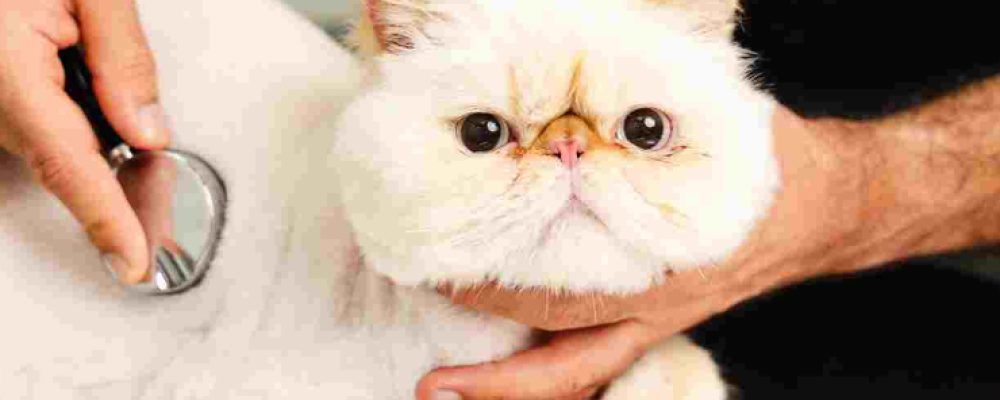Vomiting in cats might be common, harmless episodes. However, vomiting can also be a sign of a serious medical condition in cats.
Cat owners in Dubai must be vigilant and proactive when it comes to their pets’ health. There may be environmental reasons that may cause cats to vomit, given the city’s hot climate and urban conditions.
It’s essential to understand when a vomiting episode is harmless or a sign that you must bring your cat to an emergency vet clinic.
Understanding the Causes of Vomiting in Cats
There are various reasons why cats vomit, ranging from hunger to severe health conditions.
Here are the mild and severe causes of vomiting in cats.
Mild Causes
- Hairballs: Cats love to groom themselves, so they often ingest their hair. Vomiting hairballs occasionally is normal for cats, especially those with long coats.
- Dietary Sensitivity: Cats may vomit when they eat spoiled food or eat too much. Changing your cat’s diet suddenly can also cause an upset stomach and vomiting of white foam.
Severe Causes
- Toxins: Cats may sometimes ingest toxic plants or human medications that can cause vomiting.
- Foreign Objects: Small objects like string, paperclips, or plastics can’t be digested by cats, so they might vomit them out.
- Internal Parasites: Hookworms, roundworms, and other parasites can irritate your cat’s digestive system, which causes the vomiting.
- Gastrointestinal Problems: Health problems like an inflamed bowel or a blockage in the intestines are serious issues that may also result in vomiting.
- Metabolic Issues: Illnesses like diabetes, hyperthyroidism, and kidney diseases may include vomiting as one of their symptoms.
- Cancer: If a cat develops cancerous tumors in their gastrointestinal tract, vomiting may be present as a symptom.
When to Seek Emergency Care
To know whether it’s time to seek emergency vet care for your vomiting cat, here are some warning signs you must remember.
- Persistent vomiting episodes of more than once a week
- Presence of blood in the vomit
- Lack of energy or weakness
- Significant, sudden weight loss
- Decreased appetite or completely refusing to eat
- Frequent diarrhea, changes in urination, or increased thirst
- Vomiting a yellow substance
When you notice these signs in your cat, call your vet immediately. If your vet is far from home, there are emergency vet clinics around Dubai ready to help and provide urgent care. Find the one nearest to you so your cat can receive emergency care immediately.
Diagnosis of Cat Vomiting
Diagnosing the reason why your cat is vomiting may require different methods. Fortunately, vet clinics today are well-equipped with advanced diagnostic tools that will help veterinarians identify the cause of vomiting accurately.
When you bring your cat to the pet clinic, a vet will begin with a physical examination of your pet. You must also provide details and symptoms you have observed in your cat.
The next step would be to do blood and fecal testing. From a blood sample, vets can determine if your cat has infections or other internal problems. A fecal exam is used to find any signs of parasites.
If the vet clinic has diagnostic imaging equipment, vets may also use them to detect other illnesses. For example, X-rays, ultrasounds, and CT scans can help detect masses and blockages in the cat’s body.
When a vet detects a mass in your cat, a biopsy may be done to rule out cancer or inflammatory bowel disease.
Treatment Options for Vomiting in Cats
Treatment options for your cat will depend on the root cause of the vomiting episode. However, anti-vomiting medications and IV fluids may immediately be given to stop your cat from vomiting.
For parasite infestations, your vet may administer tailored deworming treatments. If your cat ingests toxic substances, specific antidotes for the toxins may be given.
Obstructions in your cat’s intestines may require endoscopy or surgery, depending on the severity of its condition. Other treatments may include bland diet therapy and long-term health management for certain conditions like diabetes and kidney disease.
If your cat’s condition is not too serious, your vet might give you a prescription and a list of instructions to care for your cat. If it’s condition is too severe, be ready because your cat may need to be hospitalized, so vets can monitor your cat closely.
Conclusion
Vomiting in cats might only be a minor inconvenience, but it can also mean a fatal medical condition. The key to knowing whether your cat needs emergency care is by monitoring your cat regularly.
Check for warning signs of severe causes, such as frequent vomiting, bloody or yellow vomit, lethargy, and refusal to eat. These may be symptoms of a fatal health condition that can become worse when left untreated.
Always have an emergency vet clinic phone number in hand so you’re always ready for any pet emergency.
FAQs
Why is my cat vomiting yellow liquid?
Yellow vomit in cats usually contains bile. This may mean your cat hasn’t been eating for long periods or has an irritated stomach.
What does it mean when my cat is vomiting white foam?
White foam vomits might mean hairballs, indigestion, or mild stomach irritation. If this happens frequently, you should schedule a vet consultation for your cat.
How can I prevent hairball vomiting?
Groom your cat regularly by brushing its coat, especially if it has a long coat. This may reduce the frequency of hairball vomiting.
Can cats vomit from overeating?
Yes, overeating can lead to vomiting in cats. Eating too quickly can also be another reason. Instead of giving your cat a large amount of food in one meal, give it smaller portions throughout the day.
What should I give my cat if he is vomiting?
If your cat is persistently vomiting, temporarily withhold food and give it small amounts of clean water to drink. Your cat must get urgent vet care to know the cause of the continuous vomiting.

